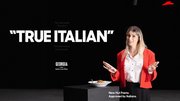Article
Does organic fit on the QSR menu?
EVOS succeeds with the use of organic ingredients, healthy options.

July 14, 2008
While consumers seem to have embraced the organic- and natural-food movement, quick-service restaurants have not yet engaged the concept to full success. But industry insiders say the evolution is not far around the corner.
Tampa, Fla.-based EVOS is one outlet that has found success with its organic and lighter-fare platform. It offers healthy versions of hamburgers, fries and shakes, all served in the quick-service atmosphere.
"Awareness is starting to heighten more than ever before, both with food and the environment," said EVOS co-founder Dino Lambridis.
In addition to the company's six established locations on the East and West coasts, four more units are expected to open by end of year. Additionally, the company has 131 agreements for new units as part of a five-year expansion plan, he said.
EVOS' genesis happened one day in the early 1990s while Lambridis roved Tampa, craving a healthier version of burger and fries. In 1994, he set out to remake fast food on those terms.
"We don't do things because they're trendy and cool now," Lambridis said. "We started because it's who we are. We target a specific demographic that is willing to spend a $1 to $1.50 more."
The chain's menu includes items such as burgers, wraps, salads, and specially trademarked "airfries" — fries that are air-baked instead of fried — and claims its items contain 50 percent to 75 percent less fat than similar menu items found at major QSRs.
While the top QSR chains have yet to move into the organic category, they are fulfilling the desires of the American public with more fresh and healthy options, as reflected in Mintel's 2008 annual QSR report, said Maria Caranfa, director of the national food-service trend organization.
According to the report, the use of fresh ingredients grew 21 percent in all dining types and 55 percent in QSRs.
The designation organic refers to the U.S. Department of Agriculture's specific certification that the product is guaranteed "to have been grown and processed without synthetic pesticides or fertilizers, irradiation, chemicals, artificial ingredients or preservatives of any kind," in accordance with the federal Organic Foods Production Act.
"‘Natural' means no preservatives or additives whereas ‘fresh' means there has been minimal processing to it," said Caranfa.
Major brands such as Burger King and Wendy's have integrated "fresh" or minimally processed items into their menus with great outcomes, she said, especially as consumers look for healthier food at an economical price.
"It's definitely a good time for more QSRs to incorporate organic items in their menus because people are looking to get more out of their money," Caranfa said.
Still, a wholesale move into the organic category by the top QSRs like McDonald's seems far away.
"We're always looking at research...but we haven't moved into that (organic) category yet," said Danya Proud, spokeswoman for McDonald's Corp.
| ||||||||||||||||||
Probably the single largest hurdle, however, is cost. Organic food on average costs more, equating to higher average tickets than mainstream QSRs such as McDonald's. Even if a ticket costs $1 or $2 more than consumers pay at McDonald's, it might drive on-the-fence customers to the more traditional — and more inexpensive — options.
Mintel advises businesses to be flexible and creative when sourcing ingredients, such as buying directly from producers instead of the open market, as well as buying locally. Still, Caranfa says poor economy or not, healthy is what Americans say they want and it might behoove the major QSRs to include organic or healthy options at similar price points to the traditional menu items.
 ChatGPT
ChatGPT Grok
Grok Perplexity
Perplexity Claude
Claude









